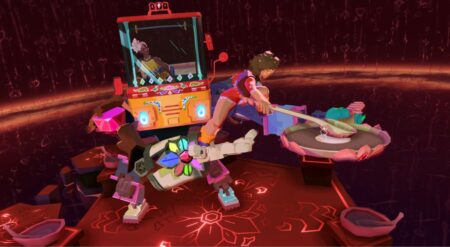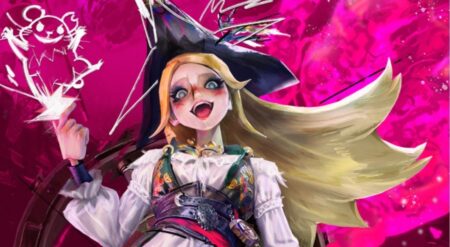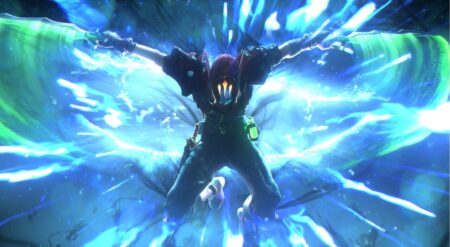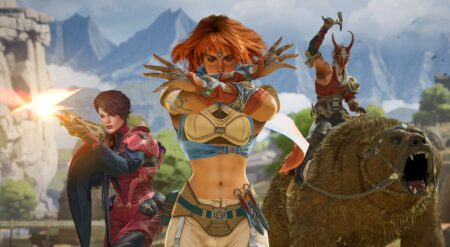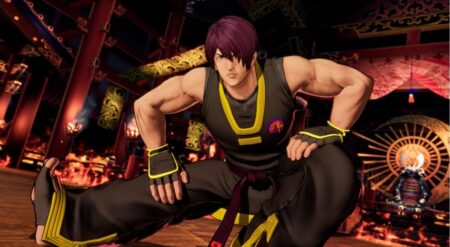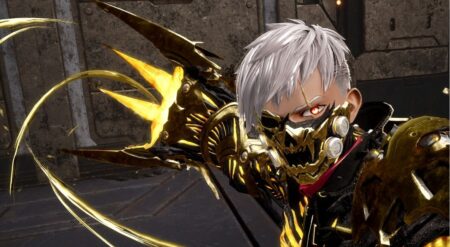Soulslikes are a dime a dozen now. It’s a genre of game that aims for difficulty and challenge and is often set in fantasy settings, as we’ve seen with the progenitors of the genre, FromSoftware. Wuchang: Fallen Feathers feels different. Published by 505 Games and developed by Leenzee, Wuchang is beautiful and absolutely brutal when it comes to learning how to play.
When it comes to the story, Wuchang: Fallen Feathers transports players to the dark and troubled late Ming Dynasty. You play as the titular Wuchang, a pirate without memories. As her amnesia impacts her life in every way, she sets off for answers in Shu, a land ravaged by constant warfare between factions and a mysterious illness that spawns monstrous creatures.
As you step into this chaotic world of Shu, Wuchang finds herself battling grotesque abominations and inner demons in equal measure. The game draws on ancient mythology, tasking you with challenging a creeping darkness that threatens what little humanity remains in the world. A key part of your journey involves piecing together Wuchang’s lost memories.
Wuchang: Fallen Feathers has a world rich in culture and lore.

While my time with the game didn’t push me toward many branching narrative paths, Leenzee has shared via their Steam page that your decisions as Wuchang will matter, with the game featuring multiple endings determined by the choices you make, the secrets you uncover, and the allies you decide to trust along the way.
The narrative depth is something I only glimpsed in my time with the game, but it’s something I deeply want to experience more. Taking part in what I assume is the beginning of the game, I awoke and was taken care of by a group I didn’t know. As I wandered outside, I found a shrine where I gave blood and prayed. The shrines work as both your respawn points and the places where you rest, or rather enter a dream, to heal and replenish what you’ve lost, and upgrade your skills.
From there, I fought a boss and lost miserably as I tried to parry with a weapon that was impossible to parry with. Still, the experience was a level-setting one. The boss creature was gorgeously animated but grotesque to look at. The balance between beauty and horror was a consistent theme as I continued through the game and fought my way through standard enemies and a couple of bosses alike.
Weapons are essential in this Leenzee-developed soulslike.

The visual fidelity of Wuchang: Fallen Feathers, paired with its blending of Chinese mythology, creatures, and creative artistry, is unmatched. However, this isn’t a horror game. The fact that Leenzee can maintain a tone in the vein of fantasy without completely coating it in darkness is a difficult task. Depth hasn’t been mistaken for dark tones, and that all works.
Circling back to my abysmal attempt at parrying, Wuchang: Fallen Feathers ties its parry system to a two-handed weapon. To perfectly parry an enemy, you have to have a heavy weapon equipped. However, when you do have it equipped over your light sword, you lose your ability to use your mythical arts that blend martial arts artistry and dodging.
The reason that this stands out so greatly when it comes to combat is that Wuchang: Fallen Feathers plays like two different games depending on which weapon you have equipped. Thankfully, there is a quick draw that allows you to quickly switch between the two. However, working that into parry timing is one of the hardest tasks I’ve encountered throughout my Summer Game Fest Play Days coverage.
Wuchang: Fallen Feathers finds the perfect balance between grotesque and gorgeous.

That said, perfect dodging is easier to figure out and time. Additionally, when using your light sword to attack, your martial arts moves will allow you to jump in to hit and then jump back out, giving you enough room to successfully block. Stringing together those quick movements with dodges and attacks is a winning combination. Ultimately, this combat style makes it all feel like a dance.
But physical combat is only one part of the game; there are spells too. While the mana system is still something I’m not entirely sure of, the spells themselves work as good distractions, buying you time to readjust your position when fighting. How strong the spells get and how much of an impact they will make beyond a valuable support skill, I’m not sure, but I’m excited to find out.
But when you’re failing at combat in Wuchang: Fallen Feathers, which you will, a lot, Leezee has baked some support into the game. Every time you die, your madness grows, reflected by a red portrait next to your health and stamina bars. You can also eat food or use items that increase this mania, and then, the next time you die, a demon will spawn with you.
Combat in Wuchang: Fallen Feathers has depth, but it’s the demon that arrives when you fail that is pushing its genre.

A shadow-self dressed in tattered white, this demon will help you deal double the damage to your enemy and draw their attention away from you. But her entrance doesn’t mean that it’s all magically easy. While she is out, you will take more damage, and her AOE attacks, which she keeps doing, will harm you.
The balance between offering players support in difficult moments but still pushing for a challenge is intriguing. Not to mention, her character design is probably one of the best in the game that I’ve seen in my time with the Play Days demo. Add in the multiple outfits that you’ll be able to customize your character with, and it’s clear that this game is looking to give players an immersive experience that they don’t want to leave.
All of this highlights that Wuchang: Fallen Feathers is taking place in a rich world that I must keep exploring. While Wuchang is gorgeous, she also has depth, and that’s clear even with only a little over an hour of playtime. Ultimately, this game boasts spectacular visuals and art direction, and a robust combat system that adds depth to how you adapt to new enemies. That all makes Wuchang an adventure worth taking.
Wuchang: Fallen Feathers releases July 23, 2025 for PC via Steam, Xbox Series X|S and PlayStation 5.


